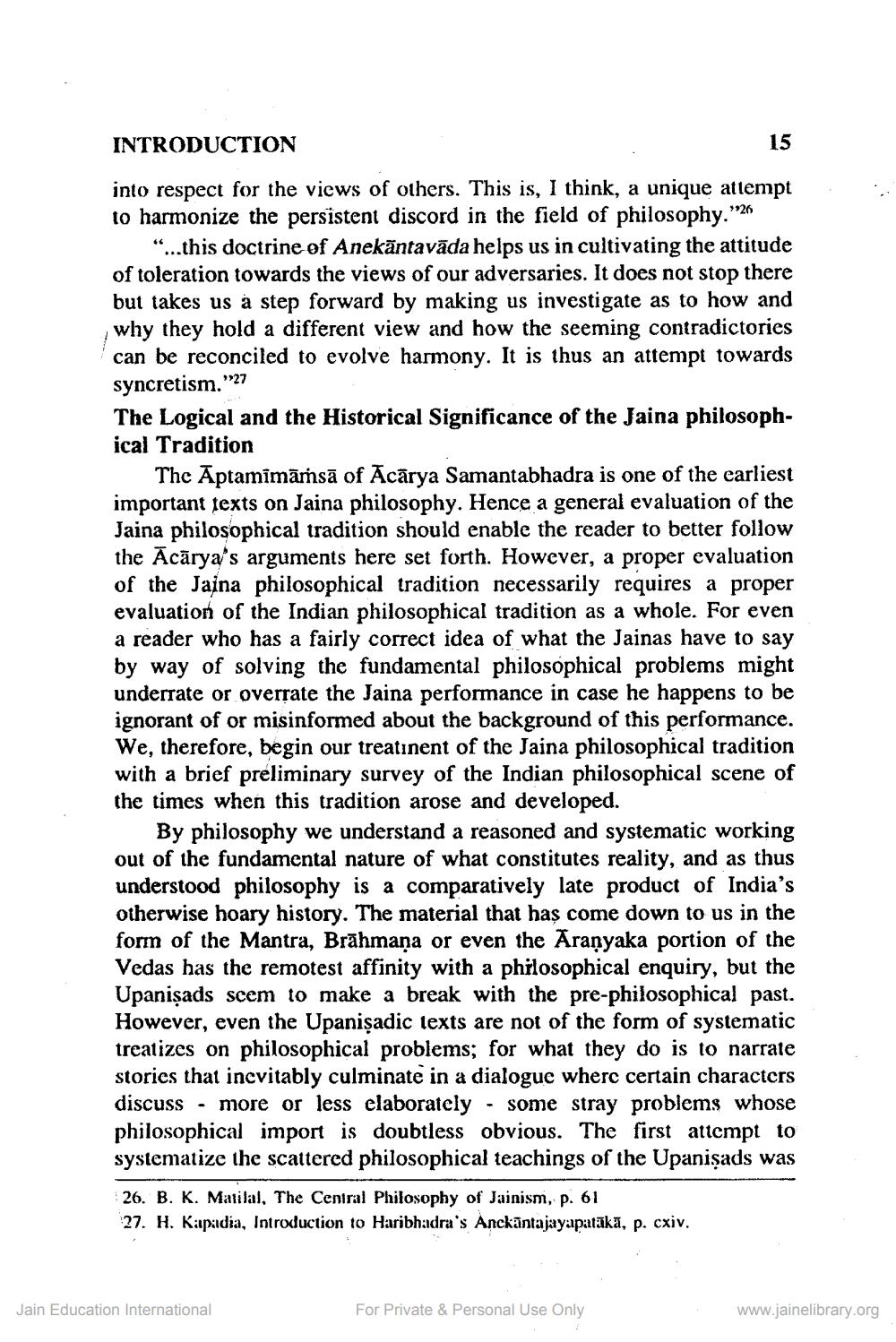________________
INTRODUCTION
15
into respect for the views of others. This is, I think, a unique attempt to harmonize the persistent discord in the field of philosophy."26
"...this doctrine of Anekāntavāda helps us in cultivating the attitude of toleration towards the views of our adversaries. It does not stop there but takes us a step forward by making us investigate as to how and why they hold a different view and how the seeming contradictories can be reconciled to evolve harmony. It is thus an attempt towards syncretism."27 The Logical and the Historical Significance of the Jaina philosophical Tradition
The Aptamimāṁsā of Ācārya Samantabhadra is one of the earliest important texts on Jaina philosophy. Hence a general evaluation of the Jaina philosophical tradition should enable the reader to better follow the Ācārya's arguments here set forth. However, a proper evaluation of the Jaina philosophical tradition necessarily requires a proper evaluation of the Indian philosophical tradition as a whole. For even a reader who has a fairly correct idea of what the Jainas have to say by way of solving the fundamental philosophical problems might underrate or overrate the Jaina performance in case he happens to be ignorant of or misinformed about the background of this performance. We, therefore, begin our treatinent of the Jaina philosophical tradition with a brief preliminary survey of the Indian philosophical scene of the times when this tradition arose and developed.
By philosophy we understand a reasoned and systematic working
of the fundamental nature of what constitutes reality, and as thus understood philosophy is a comparatively late product of India's otherwise hoary history. The material that has come down to us in the form of the Mantra, Brāhmaṇa or even the Araṇyaka portion of the Vedas has the remotest affinity with a philosophical enquiry, but the Upanişads scem to make a break with the pre-philosophical past. However, even the Upanişadic texts are not of the form of systematic treatizes on philosophical problems; for what they do is to narrate stories that incvitably culminate in a dialogue where certain characters discuss · more or less elaborately - some stray problems whose philosophical import is doubtless obvious. The first attempt to systematize the scattered philosophical teachings of the Upanisads was
26. B. K. Matilal, The Central Philosophy of Jainism, p. 61 27. H. Kapadia, Introduction to Haribhadra's Anckantajayapatākā, p. cxiv.
Jain Education International
For Private & Personal Use Only
www.jainelibrary.org




